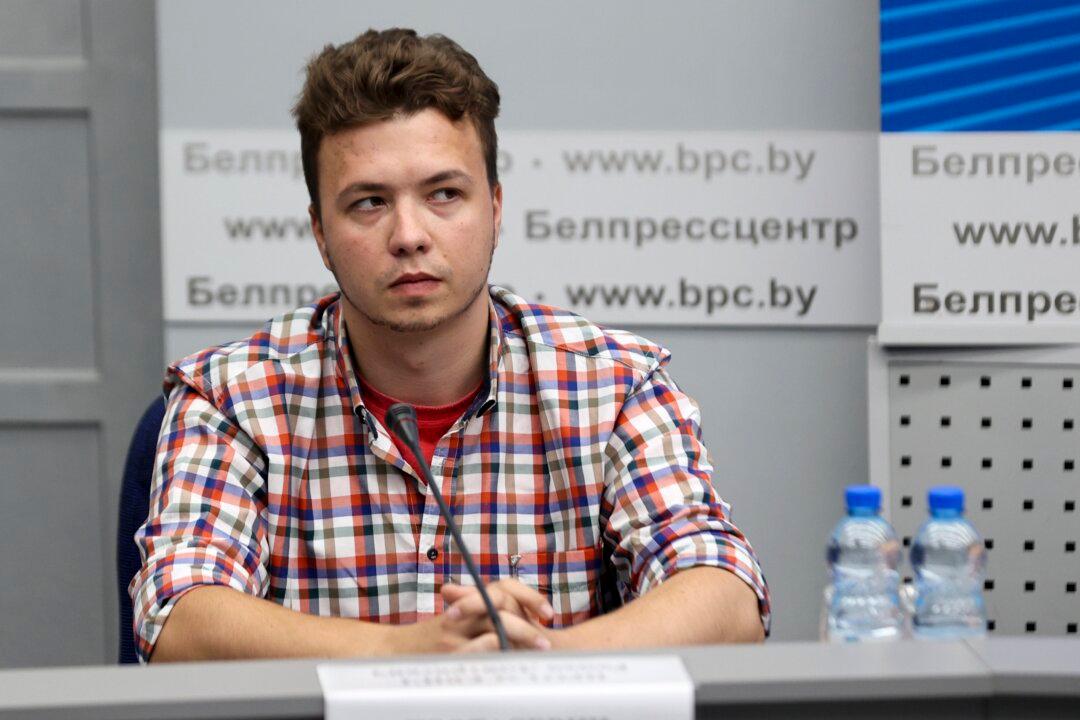KYIV, Ukraine—The dissident Belarusian journalist and his Russian girlfriend who were arrested after being pulled off a flight that was diverted to Minsk have been moved from jail to house arrest—a move that the country’s exiled opposition leader said Friday was positive but still left them “hostages.”
Raman Pratasevich—who ran a messaging app channel that was widely used in last year’s massive protests against authoritarian President Alexander Lukashenko—and his Russian girlfriend, Sofia Sapega, were seized on May 23 when their flight from Greece to Lithuania was forced to land in Minsk because of an alleged bomb threat.





